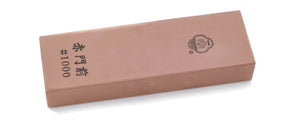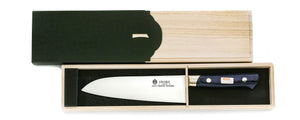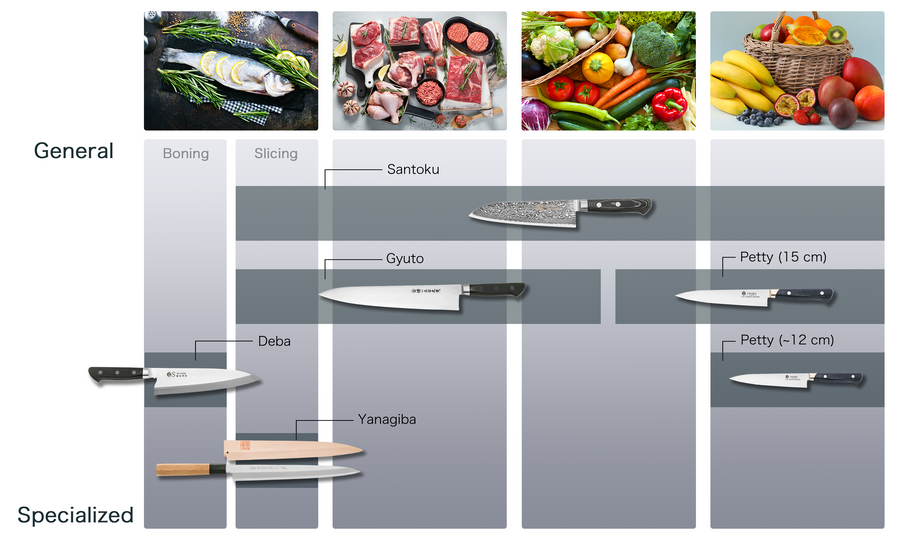White Steel #1 Montanren Series
White Steel #1 is said to be an ideal material for knife blades due to its hardness and sharpness, plus it's long edge retention and ease of sharpening. Our Montanren Series epitomises this, all forged by high-skilled artisans in every step from forging and quenching to creating the edge to bring about the best sharpness and edge retention. This series is Sakai Ichimonji Mitsuhide's masterpiece series, without a doubt. Moreover, these knives cannot be mass-produced because heat treatment in the Hi-zukuri process required for this steel is difficult. Even in Sakai, a city known for Japanese traditional knifemaking, only a few artisans can produce it. On the back of this blade, a wavy pattern called a "Montanren" is visible. This line is the boundary between soft iron and hard carbon steel, reminisicent of patterns found on traditional Japanese swords.
| Product number | Actual Blade Length (mm) | Full Length (mm) | Total Weight (g) |
|---|---|---|---|
| 1ts9s-e270 | 265 | 415 | 160 |
| 1ts9s-e300 | 290 | 445 | 200 |
| Blade | Material Name | Handle |
|---|---|---|

Single Edged |
White Steel #1 | Octagonal Ebony |

Sakimaru-Takobiki
The Sakimaru Takobiki is a modern style of Takobiki. It is mainly used for cutting sashimi. The blade is long and slender with a very thin edge to ensure a clean precise cut everytime.The knife can also be used to remove skin from fish.
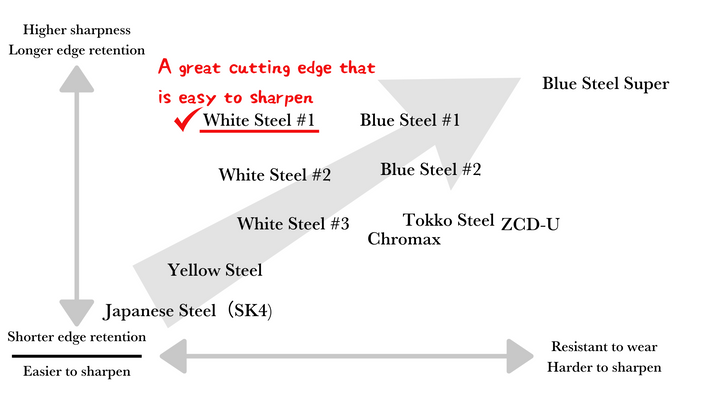
White Steel #1
The steel closest to Tamahagane, boasting high edge retention while staying easy to sharpen. Recommended for those who seek the most premium and pure sharpness experience.
Carbon Steel
White Steel #1 has higher carbon levels than White Steel #2, giving it both better hardness ratings and longer edge retention. This is done without sacrificing the ease of sharpening and lack of impurities that White Steel is known for, creating an ideal steel for those who want the sharpest cutting experience.
This steel is difficult to forge with, requiring high levels of skill to produce quality knives with. As our knives are forged, quenched and sharpened by skilled artisans, we're able to produce these premium knives.
If you're seeking the ultimate sharpness, White Steel #1 is for you.
*NOTE: Carbon Steel is susceptible to rust if it is not properly cared for. Please clean and dry the blade regularly during use and after use.
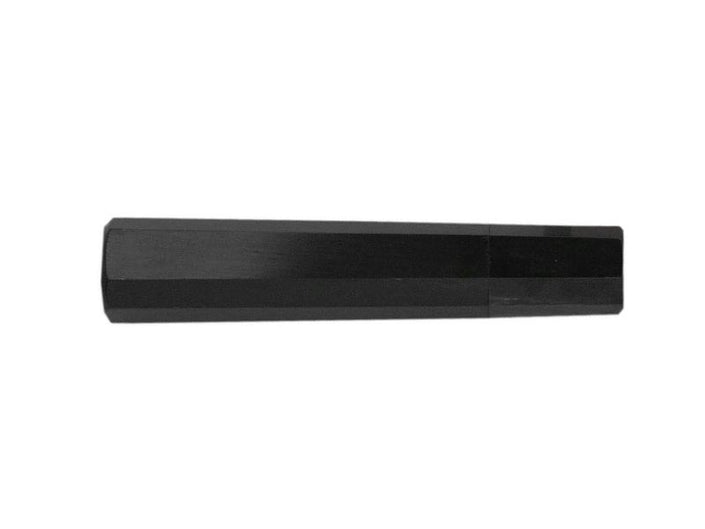
Ebony Handle
Ebony is a highly durable wood, which specializes in giving good balance to a knife. Due to both its fascinating appearance and durability, it is known as a luxurious material in Japan. The wood's unique grain naturally becomes more comfortable in your hand as you continue to use it.
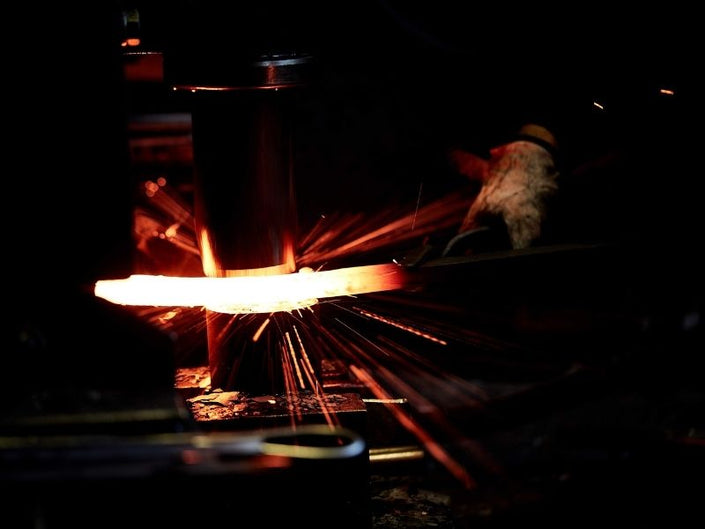
Forge Welded
Forge Welded knives undergo a forging process where steel is heated to high temperatures and then shaped with a hammer. This carefully done process changes the internal structure of the steel, producing a blade with superior hardness levels. Highly skilled craftspeople forge, quench, and create the knife's cutting edge by hand, resulting in a sharp blade with long edge retention.

Optional Engraving
Optional Engraving Service
Sakai Ichimonji provides complimentary engraving using either Japanese Kanji or English Alphabet. Please specify your preference. For details, please visit here
A knife store that has supported the history of knives and food culture in Japan.
It has been 600 years since the birth of swordmaking in the Sakai region of Japan. Sakai Ichimonji Mitsuhide's and it's craftsmen continue to build on that legacy by producing the finest blades in Japan.
This is where the culture of completing a dish of sashimi by "just cutting" and the culture of expressing sharpness as "taste" was born.
For 70 years, we have been connecting the spirit of Sakai's craftsmen with the passion of chefs in Osaka's kitchen equipment shopping district, known as the kitchen of Japan.
We are very happy that our knives can be used by people all over the world.
Precautions
After use, wash off any dirt and wipe thoroughly with a dry cloth to remove any moisture. This product is not for use with frozen foods.This product is handmade, so each piece will be different. Please use the weight and length listed as a guide. Each material is natural and may vary in color. It is not the same as the picture.We take great care with our inventory, but in the unlikely event that we are out of stock, we will contact you by email to let you know.



























